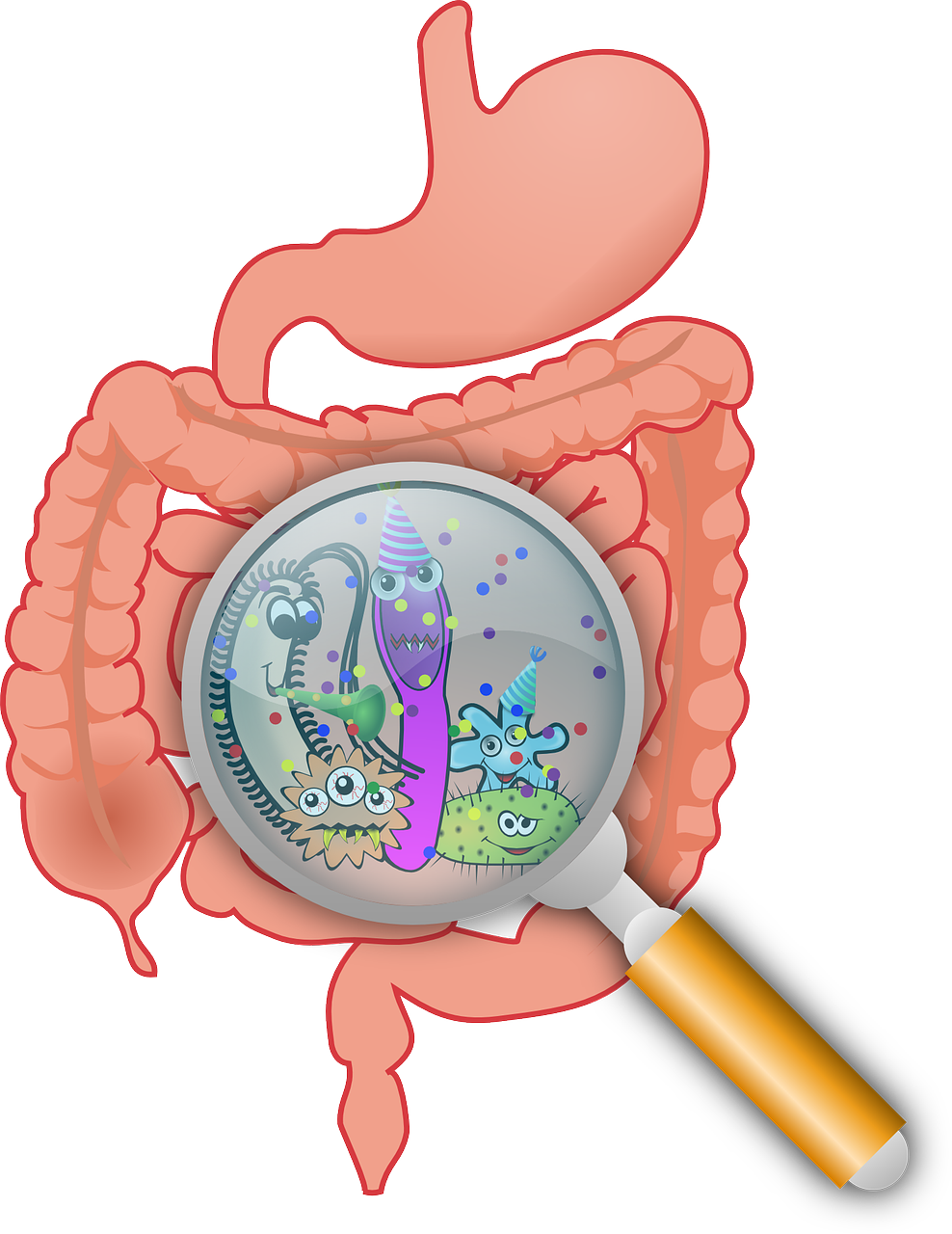What is good gut health?
A healthy gut contains a diverse range of good bacteria and a plethora of immune cells that ward off infectious agents like bacteria, viruses and fungi (in fact 70% of our immune system is located in our gut). A healthy gut also communicates with our brain through nerves and hormones, which helps maintain our general health and well-being.
According to Zoe (best known for their Covid tracker but previously very well established as gut experts) there are 5 signs of a healthy gut:
One
How often you poo – Anything between 3 times a day and 3 times a week is considered healthy. Getting up in the night to poo may be an indication of an issue

Two
How long it takes for food to be digested and work its way through your gut (gut transit time) – This should be around 28 hours
Three
The colour, shape and consistency of your poo – A healthy gut makes poo which should fall somewhere between medium to dark brown. If your poo is a different colour such as green, black, red, or yellow (and you haven’t eaten a highly coloured food like beetroot) then your gut might be misbehaving. It should be smooth in texture, form soft to firm sausage shapes passed in a single large or a few smaller pieces and sink in the toilet bowl
Four
Pain-free pooing – Being able to poo comfortably is a sign of a healthy gut. You should be able to poo without pain or feeling like you’re having to push hard to get it out. If you find yourself having some pain or discomfort when pooing, or are straining too much, that could be a sign of constipation, food intolerances, irritable bowel syndrome, or other medical problems that need checking out
Five
Not too much bloating and wind – Wind is a natural byproduct of your gut bacteria processing the food you eat. Healthy gut activity makes you fart between 10-20 times a day so don’t hold them in! Trapped wind can also make you feel bloated. While it’s normal to feel a little bloated and windy after a big meal, some people experience this more than others, particularly after eating certain foods. If you’re experiencing persistent bloating or pains that cannot be explained by a change in your diet or circumstances, such as increased stress, you should speak to your doctor
How can you improve your gut health?
According to BBC food (you can read the full article here), there are some easy changes you can make to your diet to try to improve your gut health:
- Eat a wide range of plant-based foods. A healthy gut has a diverse community of microbes, each of which prefers different foods.
- Eat more fibre. Most people eat less than they should. Fruit, vegetables, pulses, nuts and wholegrains feed healthy bacteria.
- Avoid highly processed foods. They often contain ingredients that either suppress ‘good’ bacteria or increase ‘bad’ bacteria.
- Probiotic foods, such as live yogurt, might encourage more microbes to grow. Eat them if you enjoy them.
- Choose extra-virgin olive oil over other fats when you can. It contains the highest number of microbe-friendly polyphenols.
- Antibiotics kill ‘good’ bacteria as well as ‘bad’. If you need antibiotics, make sure you eat lots of foods that boost your microbes afterwards.
- If your diet is low in fibre, a sudden increase can cause wind and bloating. This is less likely if you make gradual changes and drink extra water.
It’s also thought that fermented foods, pre and probiotic supplements and some cheeses, as well as sourdough bread, may help to improve gut health, but more study is needed.
* This article is based on my own research and should not be considered a substitute for nutritional advice from a qualified nutritionist, nor medical advice from a GP or other medical professional. Please consult your GP if you have any concerns about your digestive system.

Recent Comments